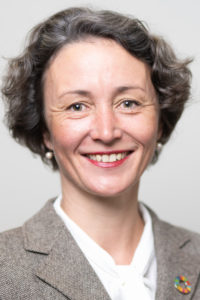Against the backdrop of current debates on significant funding cuts in the area of international cooperation, in public contributions IDOS researchers emphasised the importance of international cooperation for the implementation of long-term development goals.
Prof. Anna-Katharina Hornidge attended a joint dinner with Bill Gates and other high-ranking representatives from academia and politics, engaging in a cross-ministerial and cross-party exchange on how international cooperation has led to significant successes in the field of international health, including in areas such as child mortality and the fight against HIV/AIDS. Against this background, the development achievements of the Federal Republic of Germany, one of the largest donors, should not be pushed into the background, even in a strained budgetary situation. It was repeatedly pointed out that if Germany cut its public development aid, other countries would follow suit. This is unacceptable, especially in a world which is reorganising itself in a multipolar order. At the same time, it is clear that reforms within the political field of development policy are indispensable.
Based on these current debates, Anna-Katharina Hornidge contributed to the 23rd symposium of the Humboldt Forum Wirtschaft e.V. on 22 May. Following a keynote speech by Prof. Dr Jochen Kluve, KfW Development Bank and Humboldt University Berlin, Anna-Katharina Hornidge and Dr Henrick Maihack, Friedrich-Ebert-Stiftung, reflected in the subsequent panel discussion on the effectiveness of international development cooperation and the question of what changes are needed to make development cooperation not only more effective but also more inclusive. Anna-Katharina Hornidge suggested learning from the experiences of Australia, Canada and, most recently, the UK – all three countries in which foreign and development policy and the institutional landscapes that support them have been merged. With reference to a study by the Independent Commission for Aid Impact from 2023 and work of IDOS’ research programme ‘Inter- and Transnational Cooperation’, she emphasised the loss of global opinion leadership in the design of international cooperation that the UK has experienced with the merger of DFID and FCO and simultaneous significant ODA cuts. For the recently ongoing budget debates at federal level, this also means that the German government must be aware that if Germany cuts back in external policy areas and public development services, other countries will follow this negative example. This would lead to considerable further losses in terms of credibility in Germany’s and Europe’s global action, with corresponding negative effects on our rules-based international order.

